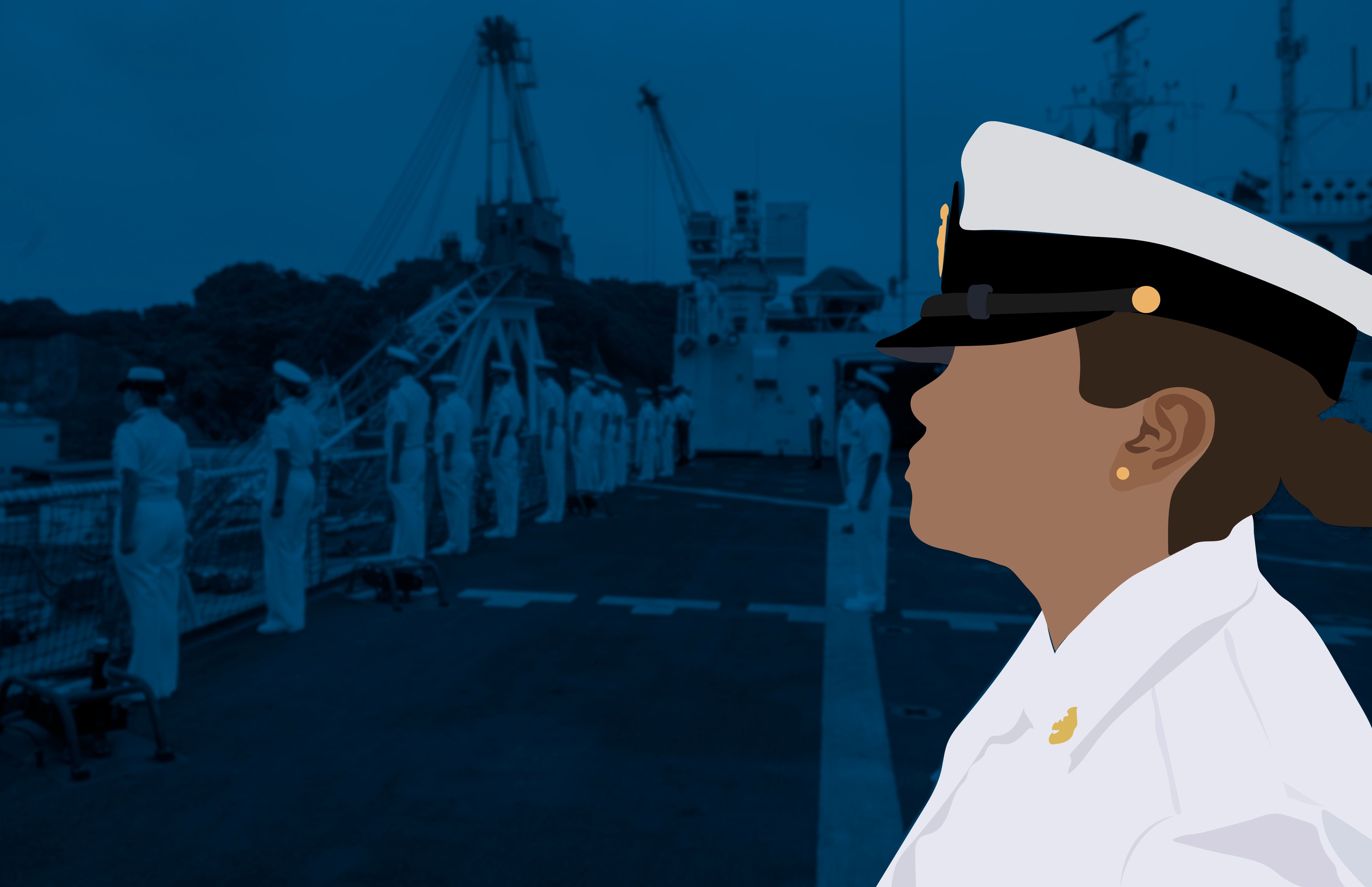On May 10, the Navy quietly fired the second-in-command of a Florida-based training unit after an investigation found he sexually harassed female subordinates.
Witnesses recalled how Cmdr. Richard Martinez, then-executive officer of the Center for Naval Aviation Technical Training Unit Jacksonville, told a female petty officer to remove her mask during a November evaluation debrief so that he could see her “pretty face,” or words to that effect, part of a “pattern of making unprofessional and inappropriate comments during the performance evaluation debriefs.”
That same month, Martinez told another female E-6, Petty Officer 1st Class Stanley, that she made her job “look so sexy” during her eval, according to a copy of the investigation obtained by Navy Times. Stanley is a pseudonym as Navy Times does not identify victims of sexual offenses.
The XO’s comment floored Stanley, she later recalled, and a senior chief in attendance nearly spit out his coffee.
“I felt insulted, belittled and that my hard work was negated by a sense of only receiving praise because I’m ‘sexy,’ and not the effort I put into my job,” she later wrote.
But she felt just as troubled by the fact that none of the three other leaders in the room — her civilian supervisor, the senior chief and the unit’s master chief — intervened on her behalf.
The room became tense after Martinez’s comment, according to Stanley, and she felt like “everyone else in there wanted to say something.”
But no one spoke up, she said, despite the military’s relentless message urging troops to intervene when their comrades are subjected to such behavior.
“Being the lowest ranking and only female in that scenario was intimidating,” she later wrote. “If my immediate supervisors weren’t going to stand up to the XO on my behalf, who was I in that moment? That’s a cowardly mindset, but that’s how it happened and it festers in the back of my mind.”
Navy Times could not independently verify if any of those other leaders spoke with Martinez about his comment, as neither the former XO nor several of the others present commented for this report.
Stanley spent months rehashing the incident and wondering what she would have done if one of her sailors were in such a position.
She wanted to report her XO, but the silence of those other leaders led her to question what she had experienced, and if it rose to the level of a reportable offense.
RELATED
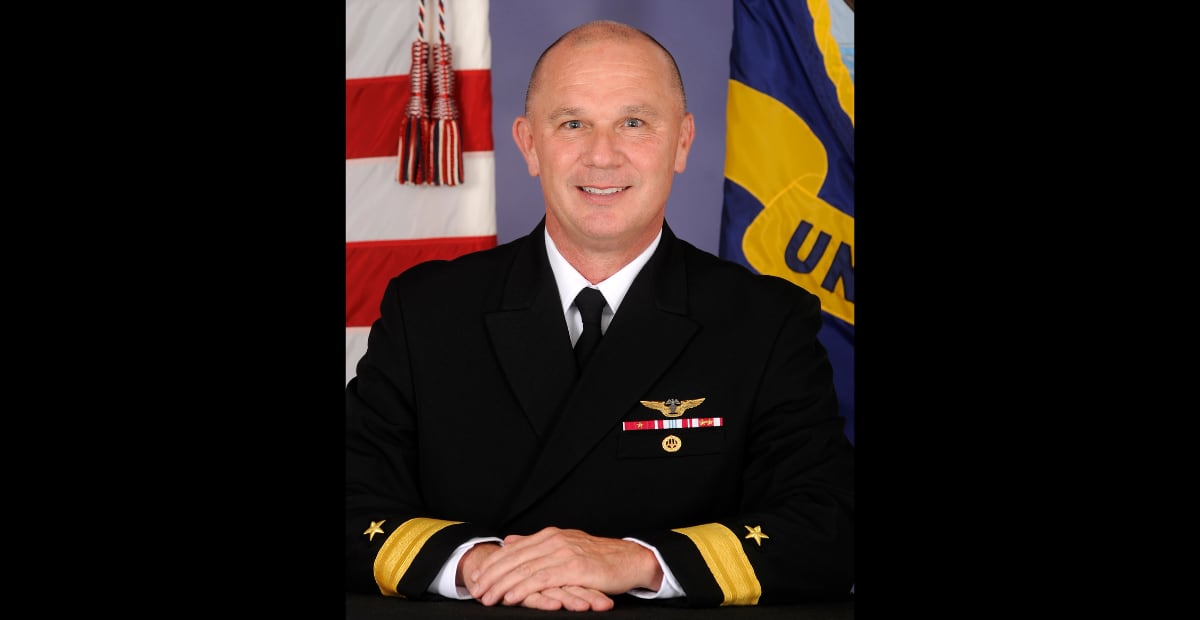
“This f---ing bystander intervention that they shove in our faces constantly,” Stanley told Navy Times. “Practice what you preach.”
While Stanley’s ordeal reflects the harm that can be done to a sailor when their supervisors don’t intervene, it also suggests the tension at play when correcting a superior in an institution built on respecting rank, despite the constant high-level military messaging and training that urges intervention.
Protecting one’s sailors while potentially incurring the wrath of a superior is a difficult line to walk, said Raymond Kemp, a former fleet master chief who retired in 2019 after 33 years of service.
“How can I say something in a way that would be defensive of this woman and, at the same time, respect the position that the senior person is in and … not get myself in a hamstring trying to speak up and do what’s right?” Kemp said.
“There has to be somebody to stand up for those who can’t defend themselves.”
Every command’s leadership is different, and some in the fleet work for bosses who turn vindictive for any number of reasons, according to retired Navy Capt. Lory Manning, a former commanding officer who now works for the nonprofit Service Women’s Action Network.
RELATED
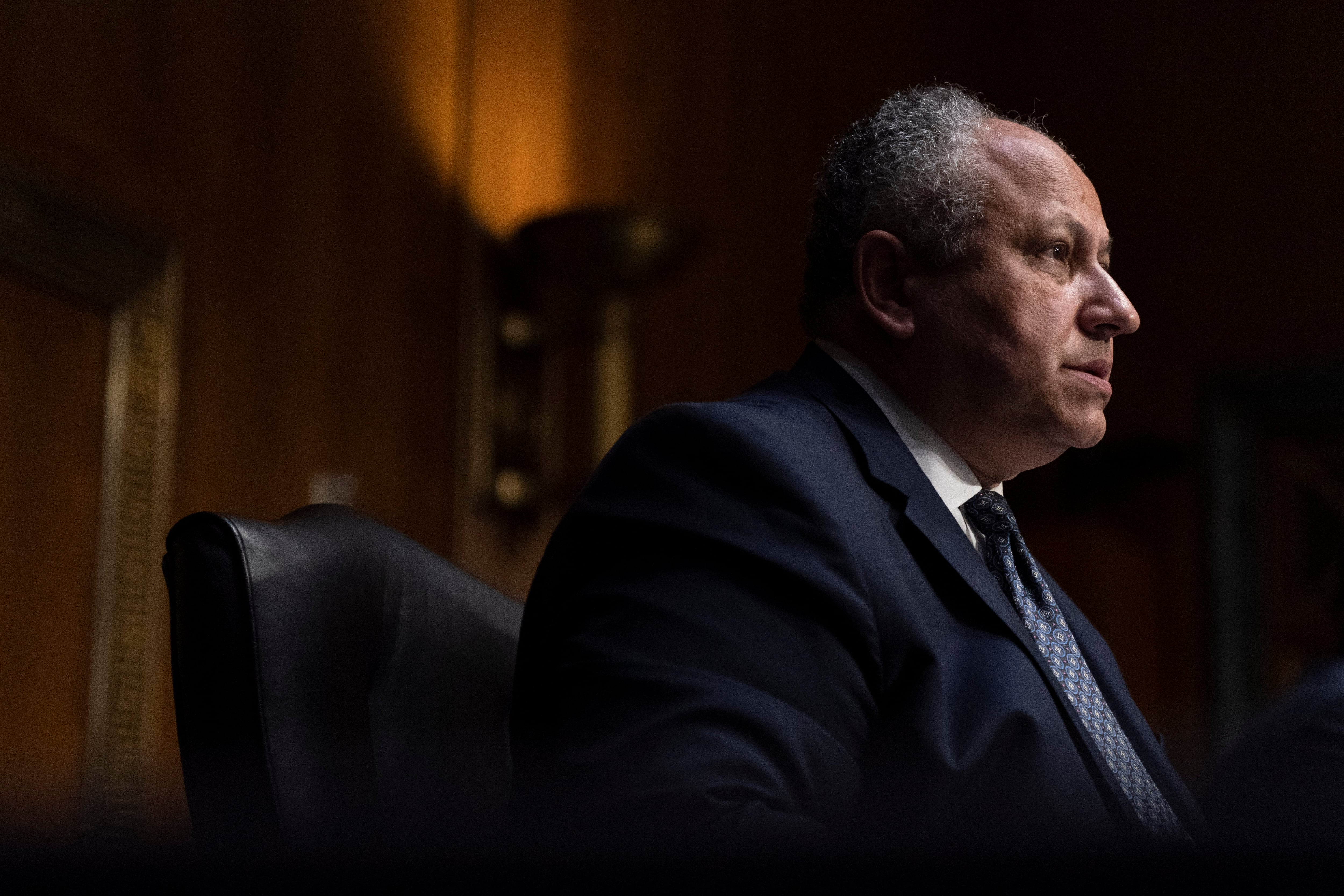
While some superiors might welcome, or at least accept, such a correction when they say something out of line, others may not.
Still, Manning said, “sometimes (bystanders are) going to have to be brave and do what’s right.”
“I feel for the team,” she said. “It’s a very awkward situation to be in. … They are junior to the XO, and it’s hard when you’re in the middle of it to call out your boss in front of somebody who works for you.”
At the very least, those leaders needed to take their XO aside after the eval, she said.
“They should have gotten to him right after and said, ‘what you did is inappropriate, commander, you can’t do that,’ and then check in with the E-6 to see if she wanted to press charges or go forward,” Manning said after reviewing the investigation.
The investigation does not indicate whether any of the other leaders spoke with Martinez after the debrief, but Stanley’s senior chief later told investigators he checked in with Stanley after the incident, although their recollections of that encounter differ.
Revelations regarding Martinez’s comments and firing comes as the military — again — seeks to bolster how it deals with sexual harassment in the ranks.
President Joe Biden signed an executive order in January codifying sexual harassment in the Uniform Code of Military Justice, and Navy Secretary Carlos Del Toro moved earlier this year to take sexual harassment investigations out of the hands of units where alleged infractions occur.
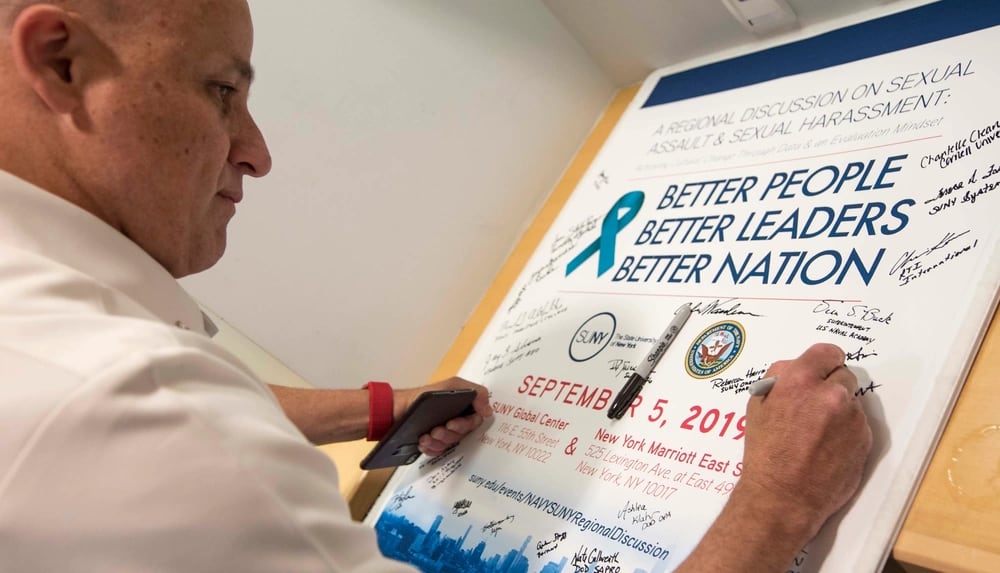
Roughly one in four military women experience sexual harassment, although it is believed that such instances are vastly underreported, according to a 2021 report from the RAND think tank.
The fallout from Martinez’s comments once again showcases the dilemma that troops — often but not always women — face when reporting sexual harassment, particularly when allegations pertain to leadership who literally hold subordinate careers in their hands.
Stanley said she plans to leave the Navy soon and admitted she isn’t sure if she would have reported Martinez’s comment if she planned to remain in uniform.
“I’m at the point of, what’s wrong is wrong, and people need to say something,” the petty officer said. “I’m getting out next year, and I’ll burn this m----f---- down.”
After talking it through with a female senior chief and her therapist — losing sleep and biting her nails down to the nubs in the process — Stanley filed a complaint against her XO in February.
Months had passed, and Stanley told her therapist how “disgusted” she was by the fact she didn’t speak out right away.
Filing that complaint was “scary but liberating,” Stanley said, and other women at the schoolhouse quietly commended her for taking action.
Martinez’s words — and professed ignorance of their impact — further reflect how sailors of different ranks and ages can differ in what they perceive as acceptable workplace comments, even as Navy brass hammer the point that such words have no place in today’s fleet.
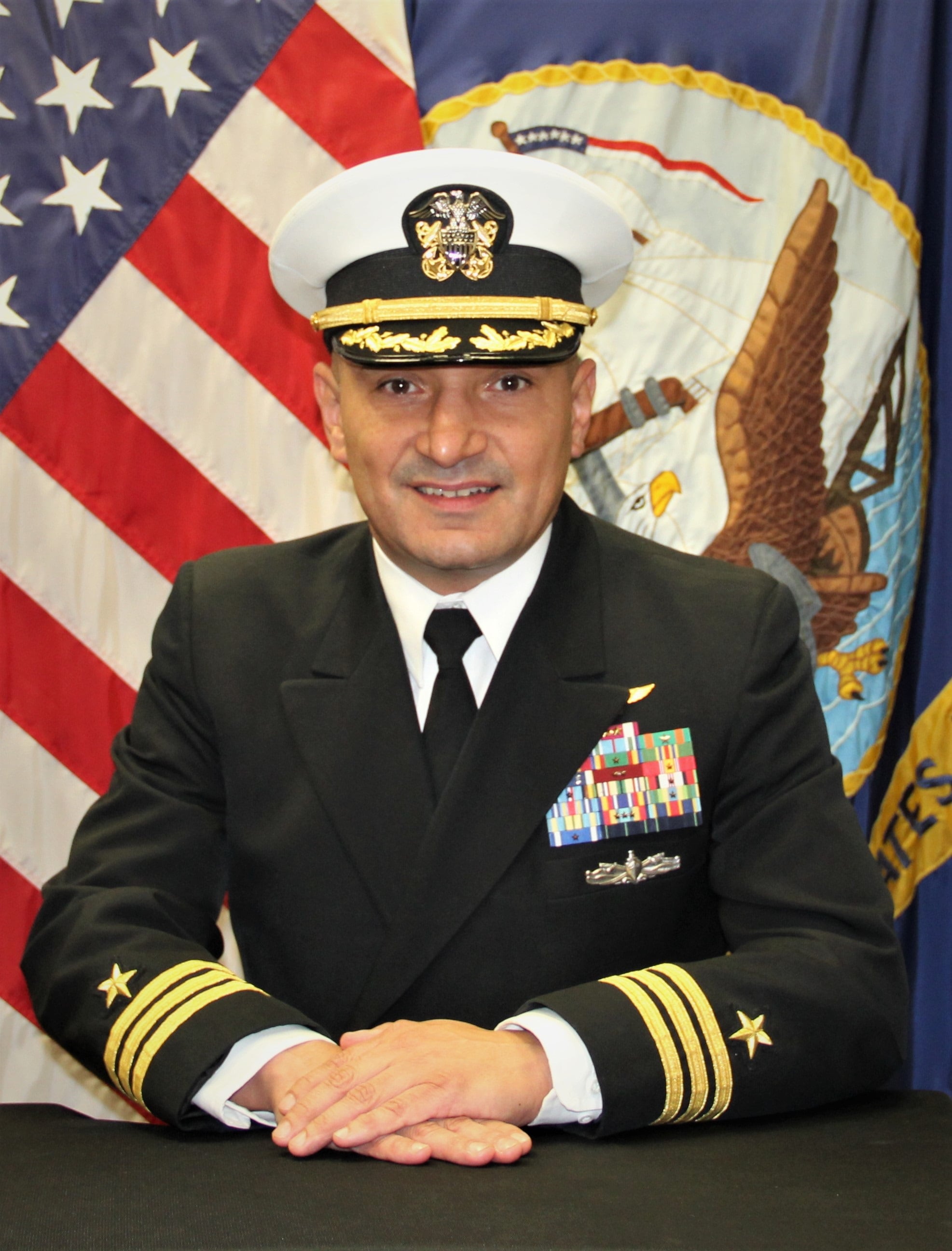
Martinez did not respond to requests for comment for this report but expressed remorse for his words in a statement included in the investigation, contending that he often uses the word “sexy” to describe things that were good, and had done so for years.
“I take full responsibility,” the prior-enlisted Martinez wrote. “I am saddened that the word sexy had such a negative impact on her. Breaks my heart.”
Stanley didn’t feel her XO’s comments — or her enlisted leaders’ lack of action — were malicious. But that didn’t salve the sting of it all.
Regardless of intent, such comments imply that women aren’t as up to the task as their male shipmates, the retired CO Manning said.
“She’s no longer a contributing member of the team” after those comments, Manning said. “She’s a toy.”
Male E-6s who underwent the same eval debrief with Martinez last November reported that he didn’t use such language with them, the investigation found
Martinez not understanding the impact of his words “drastically impacted the command,” according to the investigation.
“His lapse of judgement, lack of understanding of Navy policy, and lack of self-awareness has led him to this point,” the investigator wrote. “While he may not have intended harm to the Sailors and victims, he has lost their trust and confidence.”
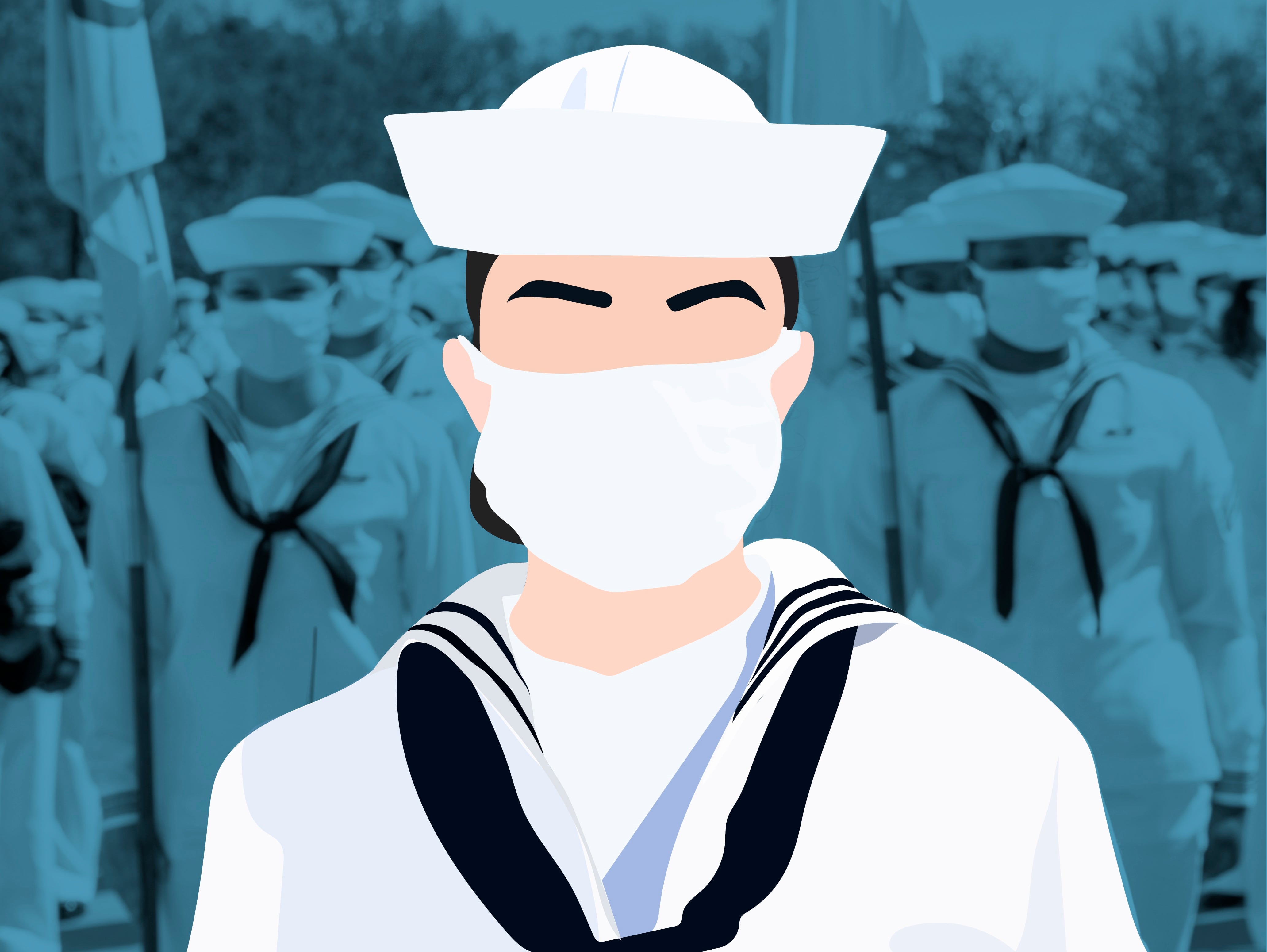
‘They wouldn’t have my back’
The Navy has work to do when it comes to training the fleet at all levels to speak up, be it about inappropriate comments, faulty equipment or an unsafe work practice, Manning said.
“The chain of command ought to be teaching those juniors, whether it’s the CO or an E-5 who has an E-3 working for them, that part of their duty as a potential leader … is to speak up when they see something wrong,” Manning said. “I don’t think we do a good job of teaching our leaders as we’re developing them … in terms of taking care of their own people, teaching them to take care of each other.”
Stanley’s senior at the meeting, listed in the investigation as “AECS Boyts” and confirmed as Aviation Electrician’s Mate Senior Chief Joshua Boyts, told Navy Times that Martinez’s comment “definitely made me feel uncomfortable,” but echoed Martinez’s explanation that the former XO used the word “sexy” in reference to “different programs or individuals that have done a good job.”
“Knowing him, it was not a comment based on her appearance,” Boyts said earlier this summer.
Stanley said part of her hesitation to report Martinez’s comment stemmed from the fact that she didn’t think her superiors would support her.
Her direct supervisor, referred to in the investigation as “Mr. Lovell,” was there, along with Boyts and Master Chief Aviation Electronics Technician William Antweiler. who was the unit’s senior enlisted leader at the time, according to the investigation records and Navy officials.
RELATED
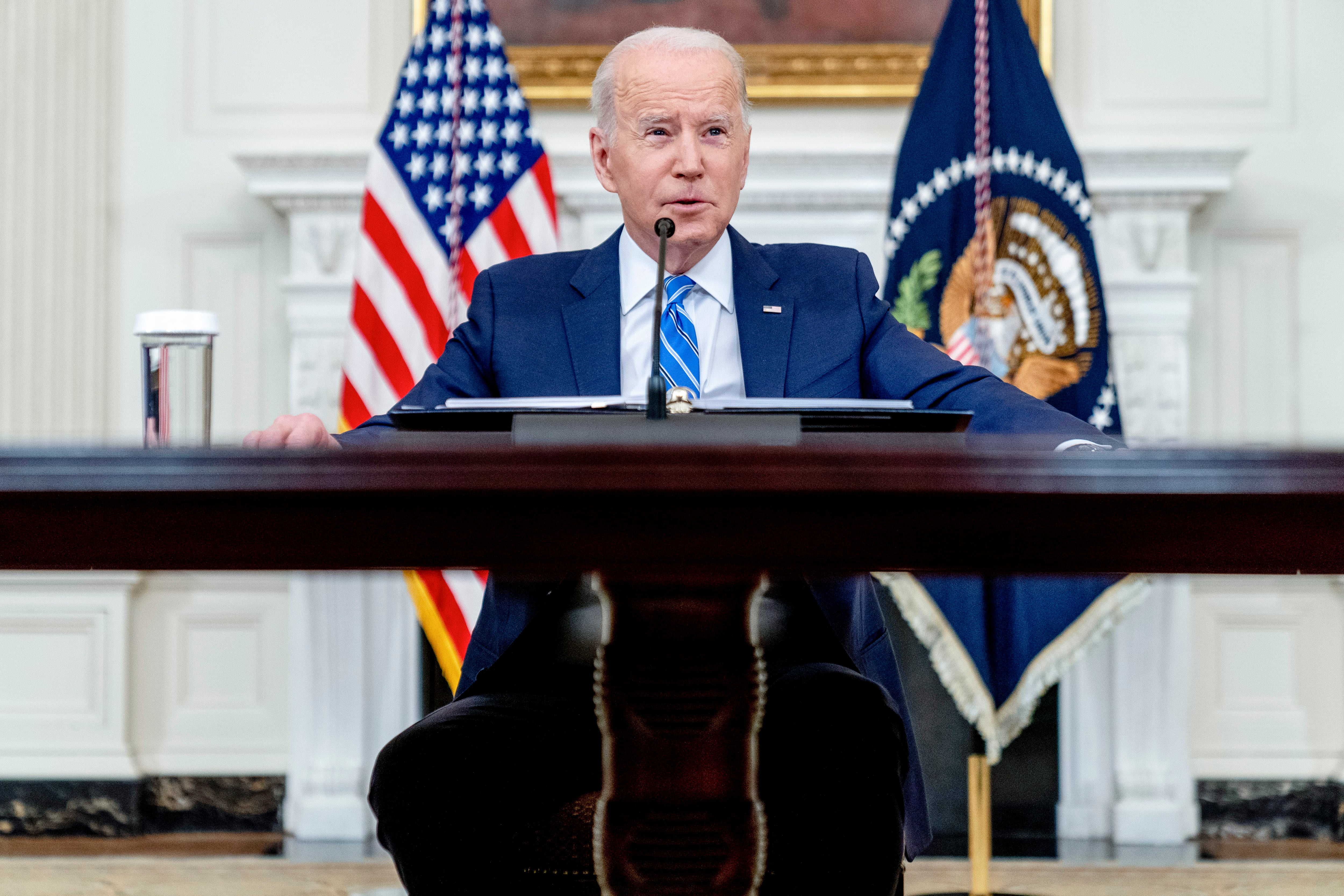
“I kept the incident to myself because my leadership clearly stated they wouldn’t have my back,” she wrote in a statement to investigators.
That sense was hammered home in an interaction she had with Boyts following the debrief, an encounter that the two sailors recall differently.
Both agree that Boyts, Stanley and Lovell all discussed the incident afterwards, that Boyts checked in on her and that she jokingly played off the incident.
Stanley wrote in her complaint that she told Boyts and Lovell that Martinez “was lucky it was me because if he would’ve said that in front of the wrong person, he would’ve caught a case.”
Stanley later beat herself up for saying that.
“I have a tendency to deflect when I am extremely uncomfortable, and sometimes make a joke in hopes of taking the attention away from myself,” she wrote in the complaint. “I have a tendency to downplay things that happen to me because I feel I have to maintain my ‘toughness.’”
Stanley alleged in the complaint that she suggested Boyts would need to stick around the command to be a witness.
“I won’t tell them anything,” Stanley alleges Boyts told her, according to the investigation. “I ain’t no snitch.”
“Whatever the intention behind that response, it definitely deterred me from speaking up,” Stanley wrote.
Boyts denied saying those words to Stanley during a phone interview with Navy Times earlier this summer.
“I never said I’m not a snitch,” Boyts said. “Immediately after (the eval), I spoke to her and asked her if she was okay. … She laughed about it. She said it was funny; she had already spoken to her husband about it.”
In such situations, seniors are not only letting their subordinate down, but their superior as well, the former fleet master chief Kemp said.
“There is no place for that to be okay,” Kemp told Navy Times. “I just have to give the XO that shot across the bow in the presence of others to let him know, we’ve got command accountability here and you don’t get to say anything about the way they look.”
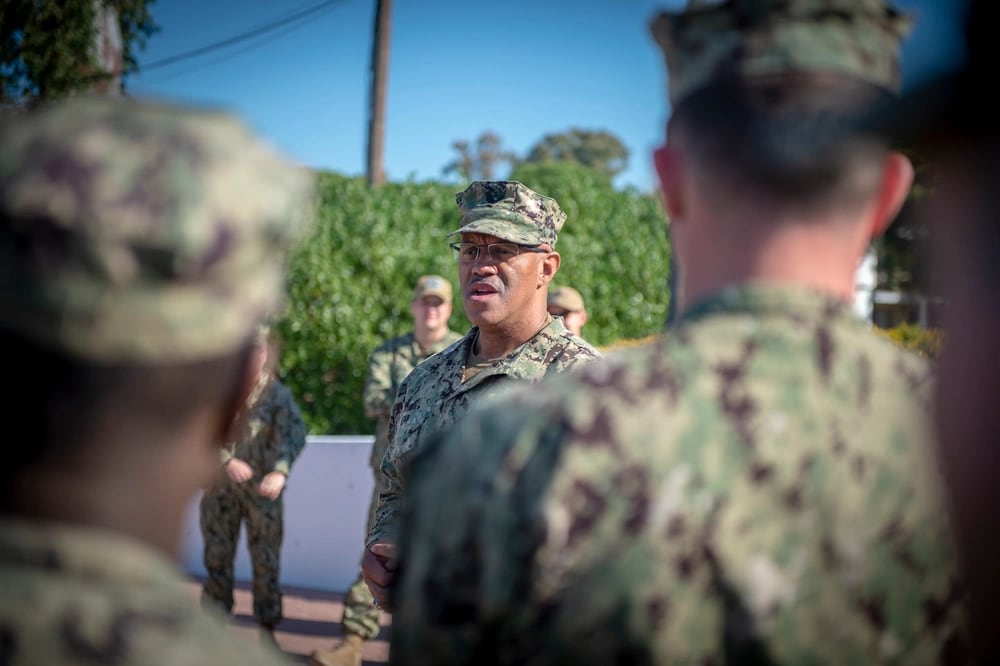
Stanley said Master Chief Antweiler eventually supported her, but only when she had her complaint written up and in hand.
“He told me it was very well-written, he wished I had said something about it sooner, and told me he wished more people had the guts to speak up in the Navy,” she wrote in a witness statement contained in the investigation.
Antweiler declined to comment for this report through a Navy spokesperson.
A man at the command who identified himself on the phone as Mr. Lovell also declined comment.
‘Something most women learn to deal with’
Naval Education and Training Command spokesman Cmdr. Brian Wierzbicki declined to say earlier this summer whether Boyts, Antweiler or Lovell were counseled or disciplined for their failure to intervene at the debrief, citing privacy regulations.
Retired Capt. Manning said she didn’t think those who failed to speak up about Martinez’s comment should be punished, but as the military evolves, they need to know such behavior is not okay.
“If I were the commanding officer, and I’ve been a commanding officer, at the end of this I would have had the chiefs in to talk to them,” Manning said. “I would have handled it with some pretty stiff counseling. I’d cut them some slack, but with some severe warnings.”
Sailors and civilians at all levels are expected to intervene “if they witness conduct that is inconsistent with Navy Ethos” or are violations of the Uniform Code of Military Justice, according to a statement from another Navy spokesperson, Gloria Kwizera.
“They are required by regulation to report what they have witnessed to a superior authority except in situations where they themselves are already criminally involved in such offenses at the time such offenses first come under their observation,” Kwizera said in an email.
Wierzbicki did not answer questions about whether Martinez faced additional disciplinary action for the substantiated sexual harassment complaints but said the former XO was reassigned to Naval Air Station Jacksonville.
For any junior sailors dealing with such situations, or witnessing inappropriate comments by their seniors, Manning and Kemp both said they need to be aware of their reporting options outside the chain of command, particularly the Naval Inspector General’s Office and other authorities.
Kemp said such instances are also a chance to utilize the commanding officer’s suggestion box to leave an anonymous note regarding what transpired.
“I would suspect most 18-year-old (women) coming into the service these days, somebody is going to play this game with them,” Manning said. “There’s a lot of plain old sexism in the military. That’s something most women learn to deal with through grammar school and high school.”
Geoff is the managing editor of Military Times, but he still loves writing stories. He covered Iraq and Afghanistan extensively and was a reporter at the Chicago Tribune. He welcomes any and all kinds of tips at geoffz@militarytimes.com.
